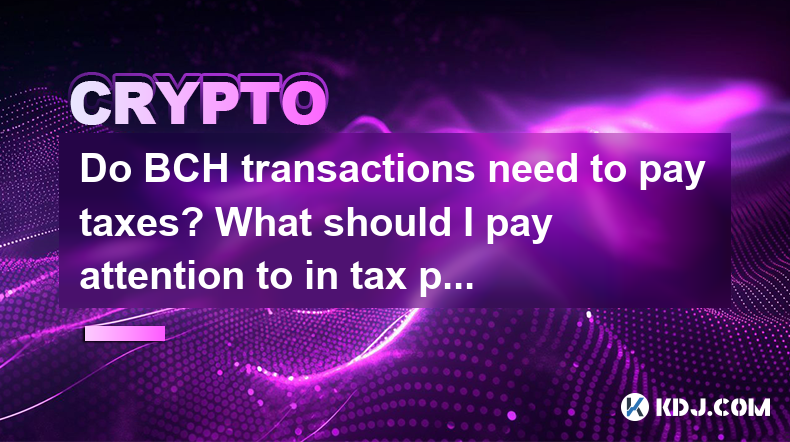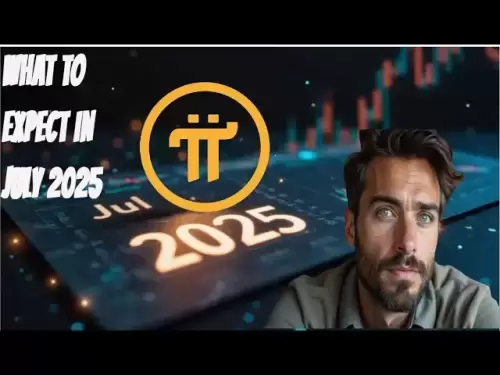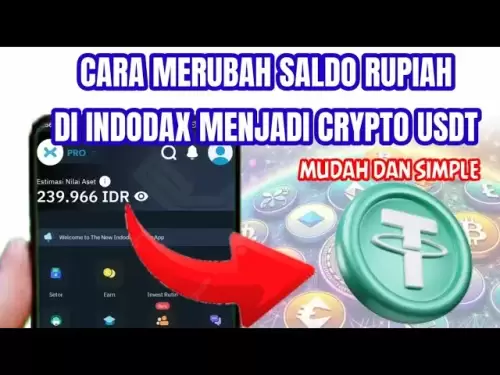-
 Bitcoin
Bitcoin $107,443.3008
-1.17% -
 Ethereum
Ethereum $2,494.2503
-0.63% -
 Tether USDt
Tether USDt $1.0003
0.00% -
 XRP
XRP $2.2496
2.23% -
 BNB
BNB $658.7569
0.63% -
 Solana
Solana $154.9826
1.94% -
 USDC
USDC $1.0000
0.01% -
 TRON
TRON $0.2799
1.07% -
 Dogecoin
Dogecoin $0.1659
-1.78% -
 Cardano
Cardano $0.5745
0.25% -
 Hyperliquid
Hyperliquid $39.7005
0.13% -
 Bitcoin Cash
Bitcoin Cash $519.5989
3.78% -
 Sui
Sui $2.7874
-2.40% -
 Chainlink
Chainlink $13.3762
-1.69% -
 UNUS SED LEO
UNUS SED LEO $9.0784
-0.64% -
 Avalanche
Avalanche $17.9846
-2.81% -
 Stellar
Stellar $0.2390
-0.06% -
 Toncoin
Toncoin $2.9028
0.25% -
 Shiba Inu
Shiba Inu $0.0...01147
-2.17% -
 Litecoin
Litecoin $86.6956
-1.27% -
 Hedera
Hedera $0.1508
-0.50% -
 Monero
Monero $322.6222
3.26% -
 Polkadot
Polkadot $3.4124
-2.99% -
 Dai
Dai $0.9999
0.00% -
 Bitget Token
Bitget Token $4.5434
-1.97% -
 Ethena USDe
Ethena USDe $1.0002
0.00% -
 Uniswap
Uniswap $7.1562
-2.61% -
 Aave
Aave $275.8830
-1.02% -
 Pepe
Pepe $0.0...09790
-4.04% -
 Pi
Pi $0.5018
-5.09%
Do BCH transactions need to pay taxes? What should I pay attention to in tax processing?
BCH transactions may be taxable; keep detailed records and consult a tax professional to ensure compliance with capital gains tax laws.
May 05, 2025 at 07:28 pm

Introduction to BCH and Taxation
Bitcoin Cash (BCH) is a cryptocurrency that emerged from a fork of the Bitcoin blockchain in 2017. As with other cryptocurrencies, BCH transactions can have tax implications depending on the jurisdiction in which you reside. Understanding whether BCH transactions are taxable and how to handle tax processing is crucial for any cryptocurrency user. This article will delve into the specifics of BCH taxation and provide guidance on what to pay attention to during tax processing.
Are BCH Transactions Taxable?
The taxability of BCH transactions varies by country, but in many jurisdictions, cryptocurrencies are treated as property rather than currency. This means that transactions involving BCH, such as buying, selling, or trading, may be subject to capital gains tax. For instance, in the United States, the Internal Revenue Service (IRS) classifies cryptocurrencies as property, and any gains from the sale or exchange of BCH are taxable events.
Capital Gains and Losses
When you sell BCH for a profit, you are subject to capital gains tax. The tax rate depends on how long you held the BCH before selling it. If you held BCH for less than a year, it is considered a short-term capital gain and is taxed at your ordinary income tax rate. Conversely, if you held BCH for more than a year, it is considered a long-term capital gain, which typically has a lower tax rate.
Conversely, if you sell BCH at a loss, you may be able to use that loss to offset other capital gains or up to $3,000 of ordinary income on your tax return. Properly documenting your BCH transactions is essential to accurately calculate your gains and losses.
Tax Reporting and Record-Keeping
Accurate record-keeping is vital for BCH tax processing. You should keep detailed records of all your BCH transactions, including the date, amount, and value of each transaction. This includes purchases, sales, trades, and even receiving BCH as payment or a gift. Many cryptocurrency exchanges provide transaction history reports that can be useful for tax reporting.
In the United States, you must report your BCH transactions on your tax return using Form 8949 and Schedule D. It is advisable to consult with a tax professional to ensure you are meeting all the necessary reporting requirements.
Common Tax Pitfalls to Avoid
There are several common pitfalls that BCH users should be aware of when dealing with taxes. One common mistake is failing to report all taxable transactions. Even if you use BCH for small purchases, those transactions may still be taxable events. Another pitfall is incorrectly calculating the cost basis of your BCH, which can lead to overpaying or underpaying taxes.
Additionally, not keeping accurate records can lead to issues during an audit. The IRS has been increasingly focused on cryptocurrency transactions, and having detailed records can help you substantiate your tax filings if questioned.
Steps for Tax Processing of BCH Transactions
To effectively handle the tax processing of your BCH transactions, follow these steps:
- Gather all transaction records: Collect all records of your BCH transactions from your cryptocurrency exchanges and wallets.
- Calculate your cost basis: Determine the cost basis for each BCH transaction. This is typically the price you paid for the BCH, including any fees.
- Determine your gains or losses: Calculate the difference between your cost basis and the value at which you sold or exchanged your BCH.
- Report on Form 8949 and Schedule D: Enter your BCH transactions on Form 8949, which will then be summarized on Schedule D of your tax return.
- Consult a tax professional: Given the complexity of cryptocurrency taxation, consulting with a tax professional can help ensure you are compliant with all tax laws and regulations.
Frequently Asked Questions
Q: Can I use BCH to pay taxes directly?
A: In most jurisdictions, you cannot pay your taxes directly with BCH. You will need to convert your BCH to fiat currency to pay your taxes. However, some tax jurisdictions are beginning to explore the possibility of accepting cryptocurrency payments, so it's worth checking with your local tax authority.
Q: What happens if I receive BCH as a gift?
A: Receiving BCH as a gift may have tax implications depending on the value of the gift and the tax laws in your jurisdiction. In the United States, if the value of the BCH exceeds the annual gift tax exclusion, the giver may need to file a gift tax return. The recipient does not typically owe taxes on the gift, but they will need to use the fair market value of the BCH at the time of receipt as their cost basis for future transactions.
Q: How do I handle BCH mining rewards for tax purposes?
A: BCH mining rewards are considered taxable income in many jurisdictions. The fair market value of the BCH at the time you receive the mining reward is considered your income and must be reported on your tax return. Additionally, any subsequent sale or exchange of the mined BCH would be subject to capital gains tax.
Q: Are there any tax benefits to holding BCH long-term?
A: Yes, holding BCH for more than a year can qualify you for long-term capital gains tax rates, which are generally lower than short-term rates. This can result in significant tax savings, especially if the value of BCH appreciates over time.
Disclaimer:info@kdj.com
The information provided is not trading advice. kdj.com does not assume any responsibility for any investments made based on the information provided in this article. Cryptocurrencies are highly volatile and it is highly recommended that you invest with caution after thorough research!
If you believe that the content used on this website infringes your copyright, please contact us immediately (info@kdj.com) and we will delete it promptly.
- Rare Find: The 2p Coin Error Worth £1,000!
- 2025-07-01 14:30:12
- Bitcoin Price Rollercoaster: Trump vs. Musk, and What It Means for Your Crypto
- 2025-07-01 14:30:12
- German Banks, Crypto Trading, and FOMO: A New Era?
- 2025-07-01 14:35:12
- XRPL, Token Tracker, and XRP Holders: Navigating Security, Innovation, and Future Wealth
- 2025-07-01 15:10:12
- ETF Approval, Crypto, and Institutional Investment: A New Era?
- 2025-07-01 15:10:12
- Bitcoin Breakout Incoming? July Patterns Hint at Historic Rally!
- 2025-07-01 14:50:12
Related knowledge

How to customize USDT TRC20 mining fees? Flexible adjustment tutorial
Jun 13,2025 at 01:42am
Understanding USDT TRC20 Mining FeesMining fees on the TRON (TRC20) network are essential for processing transactions. Unlike Bitcoin or Ethereum, where miners directly validate transactions, TRON uses a delegated proof-of-stake (DPoS) mechanism. However, users still need to pay bandwidth and energy fees, which are collectively referred to as 'mining fe...

USDT TRC20 transaction is stuck? Solution summary
Jun 14,2025 at 11:15pm
Understanding USDT TRC20 TransactionsWhen users mention that a USDT TRC20 transaction is stuck, they typically refer to a situation where the transfer of Tether (USDT) on the TRON blockchain has not been confirmed for an extended period. This issue may arise due to various reasons such as network congestion, insufficient transaction fees, or wallet-rela...

How to cancel USDT TRC20 unconfirmed transactions? Operation guide
Jun 13,2025 at 11:01pm
Understanding USDT TRC20 Unconfirmed TransactionsWhen dealing with USDT TRC20 transactions, it’s crucial to understand what an unconfirmed transaction means. An unconfirmed transaction is one that has been broadcasted to the blockchain network but hasn’t yet been included in a block. This typically occurs due to low transaction fees or network congestio...

How to check USDT TRC20 balance? Introduction to multiple query methods
Jun 21,2025 at 02:42am
Understanding USDT TRC20 and Its ImportanceUSDT (Tether) is one of the most widely used stablecoins in the cryptocurrency market. It exists on multiple blockchain networks, including TRC20, which operates on the Tron (TRX) network. Checking your USDT TRC20 balance accurately is crucial for users who hold or transact with this asset. Whether you're sendi...

What to do if USDT TRC20 transfers are congested? Speed up trading skills
Jun 13,2025 at 09:56am
Understanding USDT TRC20 Transfer CongestionWhen transferring USDT TRC20, users may occasionally experience delays or congestion. This typically occurs due to network overload on the TRON blockchain, which hosts the TRC20 version of Tether. Unlike the ERC20 variant (which runs on Ethereum), TRC20 transactions are generally faster and cheaper, but during...

The relationship between USDT TRC20 and TRON chain: technical background analysis
Jun 12,2025 at 01:28pm
What is USDT TRC20?USDT TRC20 refers to the Tether (USDT) token issued on the TRON blockchain using the TRC-20 standard. Unlike the more commonly known ERC-20 version of USDT (which runs on Ethereum), the TRC-20 variant leverages the TRON network's infrastructure for faster and cheaper transactions. The emergence of this version came as part of Tether’s...

How to customize USDT TRC20 mining fees? Flexible adjustment tutorial
Jun 13,2025 at 01:42am
Understanding USDT TRC20 Mining FeesMining fees on the TRON (TRC20) network are essential for processing transactions. Unlike Bitcoin or Ethereum, where miners directly validate transactions, TRON uses a delegated proof-of-stake (DPoS) mechanism. However, users still need to pay bandwidth and energy fees, which are collectively referred to as 'mining fe...

USDT TRC20 transaction is stuck? Solution summary
Jun 14,2025 at 11:15pm
Understanding USDT TRC20 TransactionsWhen users mention that a USDT TRC20 transaction is stuck, they typically refer to a situation where the transfer of Tether (USDT) on the TRON blockchain has not been confirmed for an extended period. This issue may arise due to various reasons such as network congestion, insufficient transaction fees, or wallet-rela...

How to cancel USDT TRC20 unconfirmed transactions? Operation guide
Jun 13,2025 at 11:01pm
Understanding USDT TRC20 Unconfirmed TransactionsWhen dealing with USDT TRC20 transactions, it’s crucial to understand what an unconfirmed transaction means. An unconfirmed transaction is one that has been broadcasted to the blockchain network but hasn’t yet been included in a block. This typically occurs due to low transaction fees or network congestio...

How to check USDT TRC20 balance? Introduction to multiple query methods
Jun 21,2025 at 02:42am
Understanding USDT TRC20 and Its ImportanceUSDT (Tether) is one of the most widely used stablecoins in the cryptocurrency market. It exists on multiple blockchain networks, including TRC20, which operates on the Tron (TRX) network. Checking your USDT TRC20 balance accurately is crucial for users who hold or transact with this asset. Whether you're sendi...

What to do if USDT TRC20 transfers are congested? Speed up trading skills
Jun 13,2025 at 09:56am
Understanding USDT TRC20 Transfer CongestionWhen transferring USDT TRC20, users may occasionally experience delays or congestion. This typically occurs due to network overload on the TRON blockchain, which hosts the TRC20 version of Tether. Unlike the ERC20 variant (which runs on Ethereum), TRC20 transactions are generally faster and cheaper, but during...

The relationship between USDT TRC20 and TRON chain: technical background analysis
Jun 12,2025 at 01:28pm
What is USDT TRC20?USDT TRC20 refers to the Tether (USDT) token issued on the TRON blockchain using the TRC-20 standard. Unlike the more commonly known ERC-20 version of USDT (which runs on Ethereum), the TRC-20 variant leverages the TRON network's infrastructure for faster and cheaper transactions. The emergence of this version came as part of Tether’s...
See all articles

























































































